Emil Karewicz
출생 : 1923-03-13, Wilno, Wilenskie, Poland [now Vilnius, Lithuania]
사망 : 2020-03-18
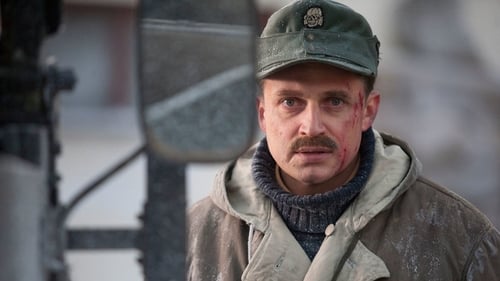
Hermann Bruner
The cinema war-action movie takes place partly during WWII and partly in 1975 in Spain. The main characters: agent Capt. Hans Kloss and Herman Bruner, want to find the stolen treasure, putting their lives at stake.
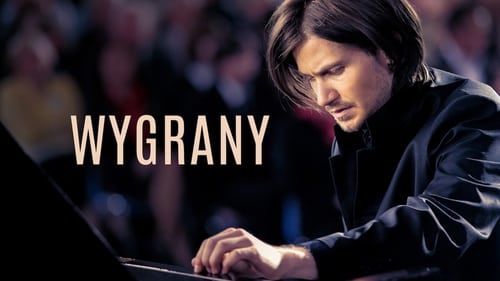
dziadek Olivera
Oliver (Pawel Szajda) is a talented young pianist of Polish American heritage. After breaking off his European tournée, he is forced to repay the tour organizers 250 thousand Euros. On his journey, he meets the very colorful character of (Janusz Gajos) a retired high school math teacher and a great enthusiast of the horse races. He dreams of returning to America as a somebody, but can only do so after wining a momentous prize. From then on the two friends endeavor to gain success. They discover true friendship. Together they fulfill Franks dream of winning at the horse races, which in turn allows Oliver to buy back his personal freedom. Having recovered from a dramatically ended marriage, the young man is able to open up to a new love.
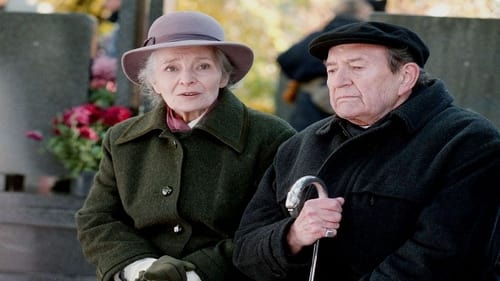
Ryszard, ojciec Krystyny
As every year, the celebration of All Saints Day brings Polish families together at the graves of their loved ones. On this special day Maria, 80-year-old widow, visits the graveyard with her son, his wife and their children.

Edward Lechotycki, dziadek Tomka
Television film from the "Polish Holidays" series was made according to his own script by Ryszard Bugajski, creator of the famous "Interrogation". A tragicomic tale of life, transience and destiny that one cannot escape. The story of three generations - grandfather, father and son are together again, but all three realize that it is not for long. A serious illness does not give up. However, this meeting arranged by the junior on the occasion of Father's Day will teach them a lot, will allow them to learn other values, overcome their barriers, understand the meaning of life, throw out deeply hidden regrets and grievances, strengthen family ties, resolve disputes, clear up past misunderstandings and disputes.
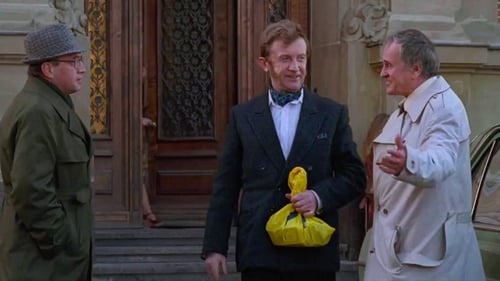
niemiecki turysta
Two friends recall the PRL. After serving time in jail, they took up an illegal currency exchange. Cheated by partner - they decide to take revenge. Preparations take many months, but the action ends differently than it was planned.

Sokor
Zdzicho leaves a prison and tries to get his share from his former partners.

Stanislaw Jablonski
Film about the famous Battle of Vienna and the events surrounding it.

Kazimierz Sosnkowski

płk Edward House, współpracownik prezydenta Wilsona
A two-part historical film covering the years of the First World War and the post-war period up to 1919 - until the signing of the peace treaty in Versailles near Paris. An attempt to show the great and complicated process of regaining an independent existence by a nation within its own state. The screen shows characters from history textbooks: Józef Piłsudski, Ignacy Paderewski, Roman Dmowski, Wojciech Korfanty as well as representatives of the world political scene, incl. David Lloyd George, Woodrow Wilson, Georges Clemenceau, Vladimir Lenin and others.
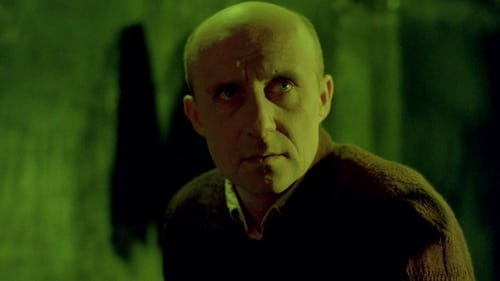
Szef lekarzy
핵으로 인한 세계의 갈등 이후 한 나라에서 과학을 통해 신인류를 만들어내려는 시도가 이뤄진다.
실험을 통해 페르나트라는 골렘이 창조되는데, 이 인조인간이 전체주의 통제 하의 국가에서 개인에 대한 자각을 갖게 된다.

ojciec Krystyny

Breitkopf
Set at the turn of the century it presents a story of a famous Polish athlete, Zbyszko Cyganiewicz. It begins in a small town where a traveling circus attracts a shy boy into a phony wrestling game to please the crowds. The youth, however, takes his strength seriously, eventually defeating a name wrestler in a fair match. Angered circus manager fires him; he leaves happily due to two wrestler brothers who were harassing him. The wrestler goes on to fame, performing in the world's top arenas, and one day is serenaded by a tenor from the crowd. Fame brings him women and admirers but he is uncompromising on his profession. He has his revenge on one of his tormentors defeating him in the ring. One day, attending a game in a tuxedo, he is challenged by another of the brothers and drawn into a brutal game, in course of which he kills his opponent. Thus his career ends.

Maks

Szef
City Bieszczady Mountains, 1946. Seven soldiers stop in a small town where should take place a wedding...

Presenting a different approach to life, the three brothers meet at their father's funeral.
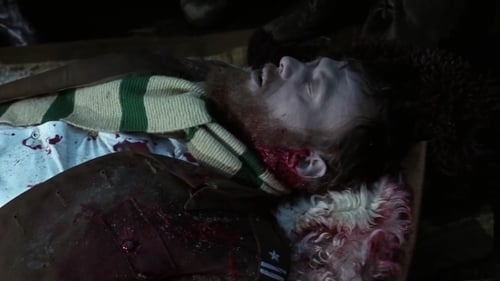
Rotmistrz Stanisław Sołtykiewicz
Based on a true story. After Poland is overrun by Axis forces in 1939, an officer and his remaining men decide to continue fighting the invaders alone, thereby becoming the first guerrillas of World War II.
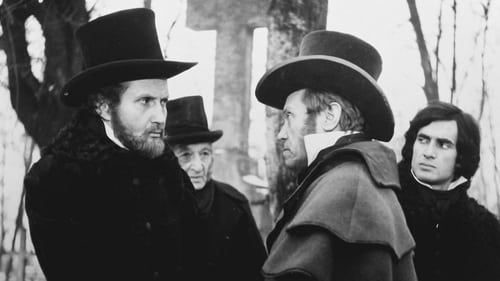
Sędzia śledczy
The story is set in 1830s, shortly after the November Uprising in Poland. Julian, a young man with artistic interests, comes back home from abroad, where he studied history of art and anatomy. He wants to visit his father and meet his new wife, Katarzyna. Julian's mother died 6 years ago and although her husband promised her that he will never get married again, he broke this oath. The woman's ghost has not abandoned the house and is waiting for the punishment for her unfaithful spouse. It also influences Julian, who falls for his attractive stepmother. The doomed events constantly lead to a tragedy, which is about to happen…

Władek Zabłocki, mąż Kamy
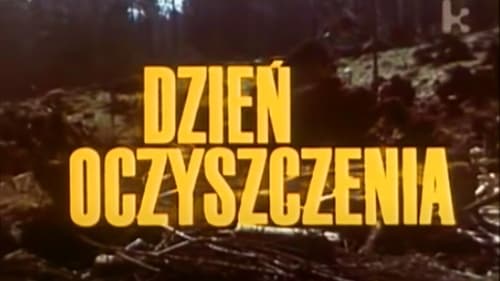
kapitan "Stańczyk"
The film is set in the summer of 1944. The Home Army branch operating in the Sądecki region is decimated by the Germans during an attempt to take over the drop of weapons and ammunition from England. About 20 soldiers break out of the encirclement, including the commander - Major "Dziadek" - and his deputy - Captain Stańczyk. Partisans are trying to get to the ruins of a nearby castle; This is where the last ammunition container was supposed to fall. The commander sends two men to scout. Only one returns, and that is without ammo.
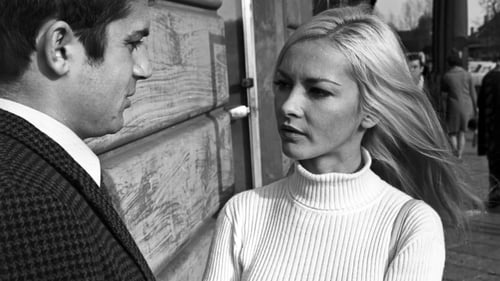
Colonel
A retired police captain, Siwy, tells a reporter about his latest action, carrying on his own investigation into the mysterious death of a Eve Salm, a.k.a. Princess. She was a witness in a case where the defendant pled guilty and was sentenced to eight years in prison. Siwy doubts the defendant's guilt and risks his life to apprehend the real killer.
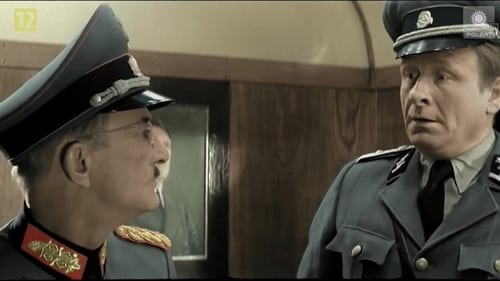
Gestapo Officer in Austria
On the night of August 31, 1939, Dolas, from a platoon reinforcing a train station on the German border, falls asleep in a train car and unknowingly crosses into Germany. The moment he shoots a German, who he thinks is a saboteur, the German invasion of Poland begins, and Dolas is convinced it was his fault. He is taken to Stalag POW camp, the first destination in his odyssey around Europe.

członek sądu koleżeńskiego

Jerzy
In November of 1939, the British consulate in Norway receives documents saying that the Nazis are conducting secret rocket research in Peenemünde. But the British doubt the authenticity of the so called "Oslo report". Thus, the Germans continue their experiments unimpeded. At the same time, resistance groups from France, England, Poland, and Germany try to find and to sabotage the secret Nazi research base. When the first "V 2" rocket is successfully launched, the Allied commanders finally become interested in the "Oslo report".
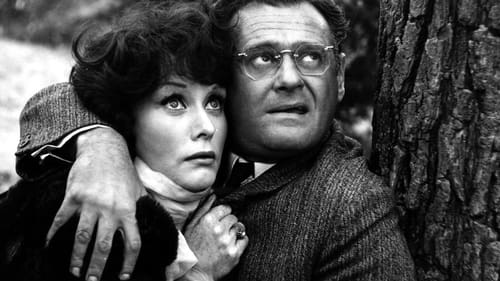
The first Polish film to discuss the failure of September 1939 Polish-German war. We can see it from the point of view of a university intellectual, fascinated by German culture, who decides to take active part in the conflict. Professor Gabriel Tomicki spends the last evening before WW2 breaks out quarreling with his university colleague Professor Dog-Lesniewski about the superiority of German over French culture. He finds German culture fascinating and believes neither in war, nor in Nazi barbarity. When the war begins, he tries to enlist and befriends Florentyna, a nightclub dancer and his neighbour. Gabriel falls in love with her, finally manages to become a soldier and even prove his courage. One day, he meets by chance his university adversary Dog-Lesniewski... —kinoholik
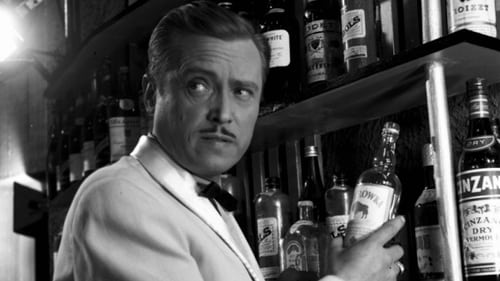
Bartender Jurek
Polish police is investigating the series of a taxi drivers murders.
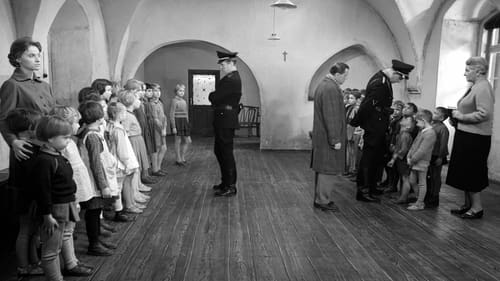
German Doctor
Three separate stories depicting the tense everyday life during occupation, as seen through the eyes of children. In “On the Road,” the two main protagonists are lost in the September’s strife: a young boy, and a soldier transporting the valueless documents of his broken unit. In “Letter from the Concentration Camp” the story’s protagonists are young boys who help their mother during the hardships of the occupation. Their treasure is an officer uniform belonging their father who is being held in a prisoner of war camp. In “Blood Drop,” the Germans find a set of typical Aryan characteristics in this story’s protagonist – a Jewish girl, hiding in an orphanage.

Kazimierz Bielas
Based on real events story of stealing methyl alcohol causing mass poisoning in town.
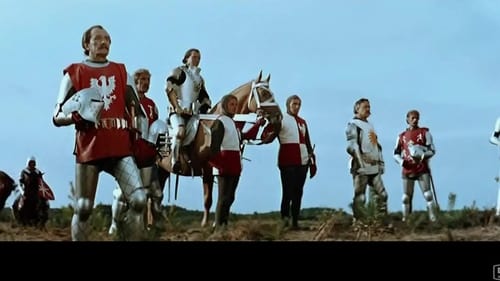
Wladyslaw II. Jagiello - King of Poland and Lithuania
A tale of a young impoverished nobleman, who with his uncle returns from a war against the order of the Teutonic Knights in Lithuania. He falls in love with a beautiful woman and pledges an oath to bring her "three trophies" from the Teutonic Knights.

Dominik
A pianist from Poland visits a town in West Germany and starts to remember details about her life during the war.

Hauptmann Grimm
A Jewish man who escapes a Nazi transport hides in a Polish ski resort town by posing for photos with tourists dressed as a polar bear.
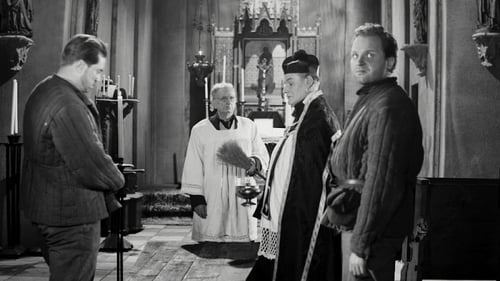
Tadek "Warszawiak"
In the rugged mountain gorges and ravines of southeastern Poland, a new boss and his wife become a catalyst for violence.

Giżycki, milicjant

Zawadzki
Zbigniew Cybulski and Sonja Ziemann play lovers struggling to find happiness and privacy in overcrowded Warsaw. The movie shows an honest picture of life in a war-damaged city, contrasting the characters' difficulties with their dreams of a better life. It was banned in Poland in 1958 and would not been seen anywhere until its European release one year later.

German pilot
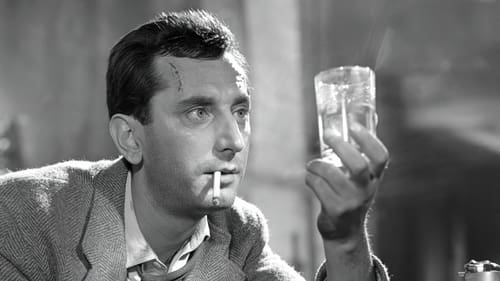
Waiter Gienek
A day in the life of an alcoholic. With the help of his girlfriend Krysia, Kuba attempts to regain control of his life. But when his girlfriend is at work and Kuba home alone, resisting temptation becomes hard.
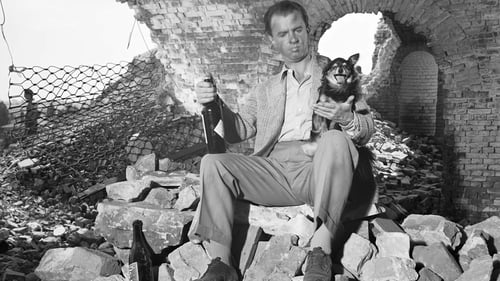
Polish Officer (segment "Scherzo alla Polacca")
Tells two tales set during WWII: A seemingly feckless and selfish finally takes up arms in the national struggle against the Nazis. Set in a POW camp, Polish inmates cling to their hopes for an eventual escape, encouraged by the legendary escape of one of their own.

Pieloch
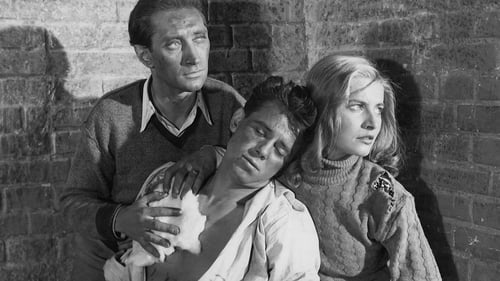
porucznik "Mądry", zastępca "Zadry"
1944년, 독일군은 바르샤바를 포위하고 폴란드인들은 처절한 저항을 이어간다. 폴란드군의 자드라 중위는 부하들과 함께 수로를 이용해 후퇴하라는 명령을 받지만 전우들과 함께 마지막까지 싸울 생각이었던 그는 심각한 고민에 빠진다.
1950년대, 감독 안제이 바이다의 주된 관심사는 독일에 의해 파괴된 조국의 고통스러운 현실을 치열한 역사의식으로 재구성하는 것이었다. <카날>은 전쟁의 포화로 초토화된 지상의 상황과, 국가적 이념과 인간적 가치 사이에서 갈등하는 지하의 고립된 인물들을 교차 편집하며 역사와 인간성이라는 두가지 화두를 심도 있게 탐구한 걸작이다. 1957년 칸영화제 심사위원 특별상을 수상하면서 바이다를 전세계에 알린 작품이기도 하다.
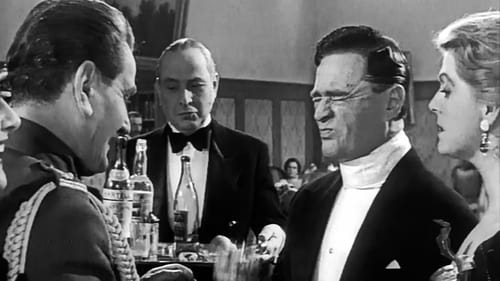
Commisar Melonek
Nikodem Dyzma is a poor dancer who comes to Warsaw to find a job. The problem is that nobody wants to hire him. One day he finds an invitation to the party with very important people and decides to attend. A small accident at the party makes him the hero of the night and becomes the beginning of his career.
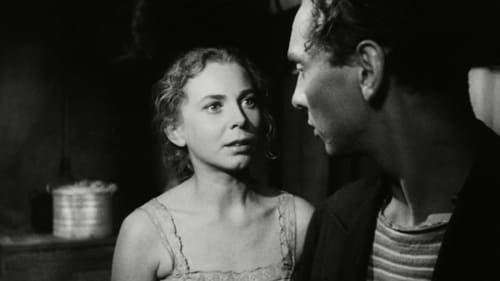
Jasiczka
A man has been found dead after having been hurled from a train. As security agents, police and a medical examiner piece together his identity, three accounts emerge: one set during World War II, one in the immediate aftermath of the war, and one in contemporary Poland.

agent policji (nie występuje w napisach)
Two-part biopic about General Karol Świerczewski, living embodiment of the party line, and the group of party members from his hometown fighting the fascist forces towards the socialist state of affairs.
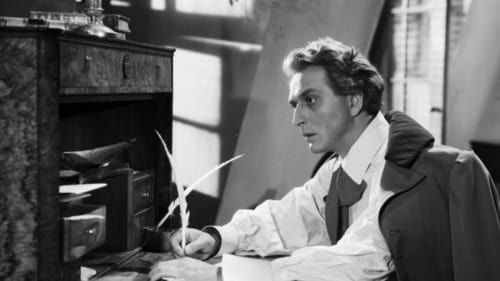
Lt. Zaliwiski
As directed by Aleksander Ford in 1952, this Polish-language period drama chronicles the life, times and accomplishments of revered Warsaw-born Romantic composer Frederic Chopin, here played by Czeslaw Wollejko (Danton). The feature focuses exclusively on the youth of Chopin (who died at age 39), spanning his 15th year (c. 1825) through his 21st year (c. 1831); it also depicts Chopin as both prodigiously gifted and one filled with a tremendous spirit of Polish nationalism. Ford concludes with the onset of the illness that eventually killed Ford, set against the backdrop of the famous November Uprising in 1830.
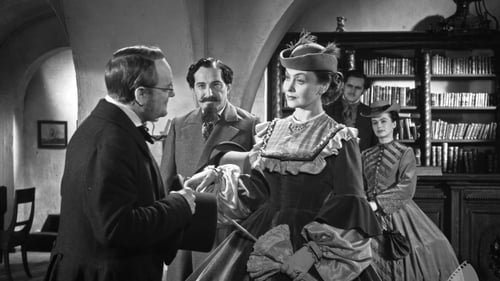
Georg





























